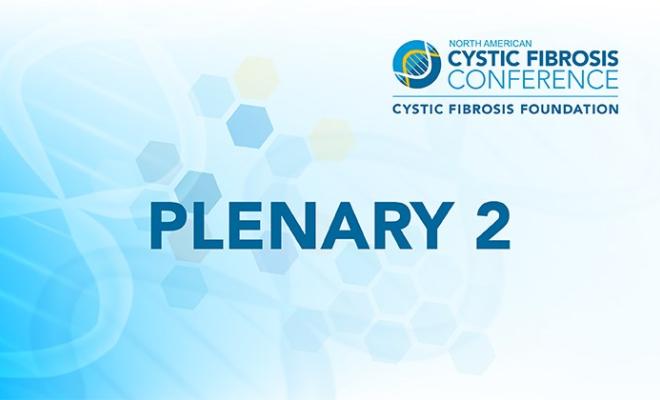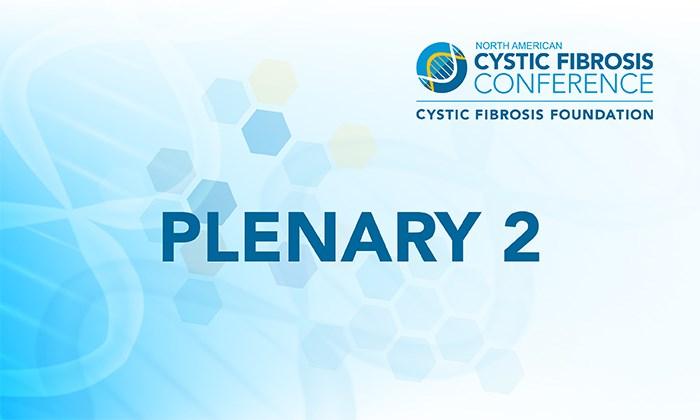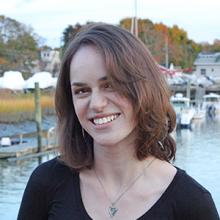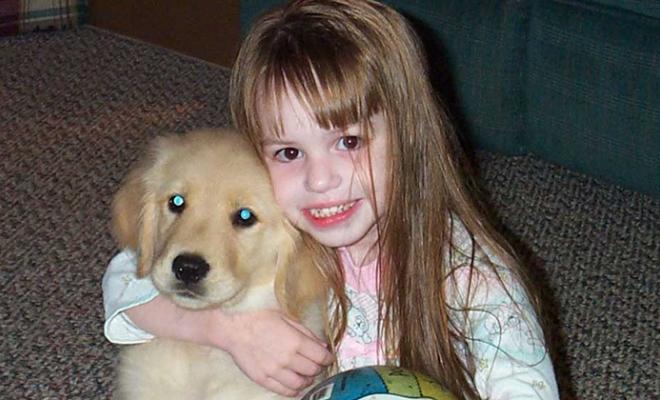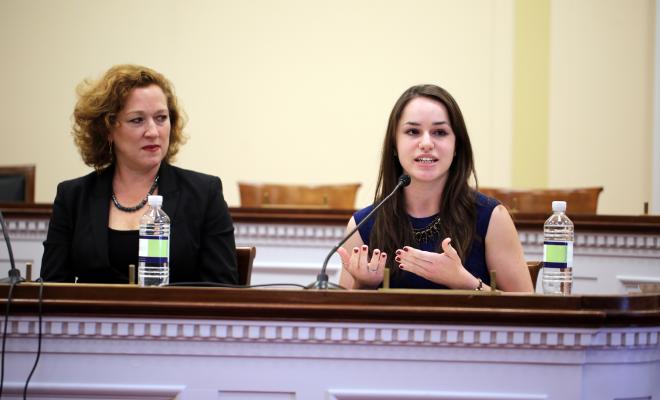A “new cystic fibrosis” is such a strange concept. For so long, the disease has remained so stubbornly unchanging that I began to build my life around it. There were times when I felt like a jetty in the ocean, getting clobbered by waves day after day. But this jetty is still standing. It's a good thing too, because I'm getting to witness the victories we've made in recent years.
Watch the full plenary on Facebook Live.
Charts and data are rarely stirring -- especially for someone like me who's more of a right-brain kind of person -- but watching this year's North American Cystic Fibrosis Conference second plenary, "Defining the New CF in the Era of Highly Effective Modulators," was absolutely moving. It wasn't just Dr. Jennifer Taylor-Cousar's obvious commitment to the CF community (although that alone made me misty). What surprised me was seeing the past year of my life captured in graphs. Of course, these data weren't specific to me. These graphs displayed Trikafta®'s effect on hundreds of CF patients' lung function. Regardless, I saw my own story in those numbers.
I'm sure we can all enjoy this triumph, but there is still work to be done. As Dr. Taylor-Cousar pointed out, we must continue studying the broader impact of Trikafta on the overall health of people with CF and whether this “new CF” will require the same treatments as before. I look forward to seeing what we learn, since I myself have been a high-responder to Trikafta.
For my whole life, especially while I was in high school and college, my health had been on a steady and unstoppable decline. You could literally see my FEV1
dipping lower and lower in my medical records. Down, down, down … Then I caught a Hail Mary pass -- Orkambi®. Suddenly, my decline slowed. My line grew shallower. I was beleaguered, hoarse, and still quite full of mucus, but I wasn't plummeting anymore.
The game had changed. We had made a breakthrough, and more progress was sure to follow. All I had to do was keep hanging in there until there were better, more targeted medications.
This gave me a lot of solace. It gave me hope as I smoked my nebulizers, as I hooked myself up to infusions, and while I swallowed enough pills to choke a horse.
Then came Symdeko®, and that line started to flatten. Steadier, steadier … The hope grew stronger, even through the doctor visits and the airway clearance and the many hours spent on the toilet. Steadier and steadier …
And then came Trikafta. I had been on it for about two weeks before I went in for a follow-up with my pulmonologist. I was feeling pretty good but was not at all prepared for the news I got in that pulmonary testing lab. I made the respiratory therapist repeat herself three or four times.
“Wait, what was my FEV1?” I squinted at her monitor.
“93 percent,” she answered casually, clearly not as shocked as I was by the number.
Ninety-three percent was impossible. That was a number I had not heard in this context for a very long time. I believe I was still in diapers the last time my FEV1 was in the 90s. I stared at the graph on the monitor, which showed my lung function over the past three years. The values had oscillated, moving up and down between exacerbations. Then, all of a sudden, the line rocketed up. I imagined it continuing … up, up, and awaaaaaaaay …
Trying to confirm this wasn't just a computer error, I insisted on a few more trials. When I finally accepted that the machine wasn't lying, I smiled.
I floated out of the room, found my mom in the waiting room, and tapped her on the shoulder. I leaned forward and whispered in her ear, “93.”
There was a very long hug, followed by a shared determination not to cry (I may have been healthy, but I was still Irish!) I could tell the woman sitting in the corner was smiling, despite her mask.
“That's a Trikafta hug!” she grinned.
Mom and I made it up to the lung clinic and into my exam room without waterworks, but when my doctor came buzzing into the room with a grin on his face, all bets were off. “How about that 93???” he asked. In response, I burst into tears.
So I want to join in with Lauren Hunsaker and John and Chelsea Demos, who appeared in the plenary videos, in thanking the people who have worked tirelessly to give us our beautiful futures. We are resilient people, and we have accomplished a lot in our lives; but now our single greatest obstacle has been broken down, and we are free. We are free to run marathons, get married, have kids, earn degrees, and do anything else we want.
There is still much more work to be done. There are still many without CFTR modulators. There is still a cure to be found. However, this plenary has proven that our work has paid off in wonderful ways. These victories have given us the momentum we need to make it the rest of the way. To learn more, watch the full plenary on Facebook Live.
Interested in sharing your story? The CF Community Blog wants to hear from you.

